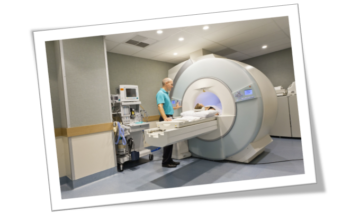New NICE guideline for pancreatic cancer
This week, the National Institute for Health and Care Excellence (NICE) published it’s guideline for the Diagnosis and Management of Pancreatic Cancer, which is the first national guideline specifically for pancreatic cancer.
In short, the new guideline aims to speed up diagnosis rates and details the most effective treatments for patients, depending on how advanced their cancer is.
The recommendations
The guideline offers a number of key recommendations including diagnosis; monitoring people with an inherited high risk of pancreatic cancer; staging the location and severity of an individual’s cancer; increased support for the psychological impact of cancer; pain and nutrition management, and management of resectable (operable), borderline resectable and unresctable (inoperable) cancer.
Key recommendations
Enhanced scans
The first NICE guideline on the diagnosis and management of pancreatic cancer recommends the use of a different type of computed tomography (CT) scan, called PET-CT. The scan will speed up diagnosis by more accurately determining the stage of pancreatic cancer in patients.
The aim of using these enhanced scans is that they ensure that people whose cancer has spread to other organs and is inoperable will not have unnecessary surgery that cannot cure their disease.
It’s estimated by NICE, that the PET-CT scan will result in a 20% reduction in surgery to remove the cancer.
Increasing the use of this scan will limit the damaging side effects for patients and ensure those with inoperable cancer can get earlier access to other treatments such as chemotherapy.
This means greater evaluation and surveillance is given so that patients can be clearly given and offered the options of care discussed with them.
Multi-Disciplinary Team (MDT)
Another key recommendation is the involvement of a Multi-Disciplinary Team (MDT), which will mean all patients are discussed and treated by dedicated specialists. The MDT will work together to create a patient’s individually tailored treatment plan.
Although the specific members of the team have not been listed in the guideline, this inclusion puts the patient at the centre of decisions made about their treatment and care. With an MDT, the patient is better informed about their specific circumstance and it encourages better communication all round.
Psychological Support
 Additionally, the inclusion of psychological support is a fantastic step. This is often overlooked but is a vital consideration as cancer can have a wide range of effects on patient’s emotions and psychological well-being.
Additionally, the inclusion of psychological support is a fantastic step. This is often overlooked but is a vital consideration as cancer can have a wide range of effects on patient’s emotions and psychological well-being.
These guidelines suggest that an individual’s fatigue, pain, gastrointestinal symptoms (including changes to appetite), nutrition, anxiety and depression should be closely monitored, as well as a patient’s family and situation. This demonstrates a step forward to more holistic individualistic care for pancreatic cancer, not just caring for the physical aspect.
“These are really important steps in the right direction for patients with pancreatic cancer. This update offers significant and much-needed guidance to improve diagnosis and ensure that patients have much better care and support. If now implemented across the country, these steps could save and improve the lives of men and women diagnosed by pancreatic cancer.”
Ali Stunt, Founder and CEO of Pancreatic Cancer Action
For more information you can go to the NICE guidelines here
